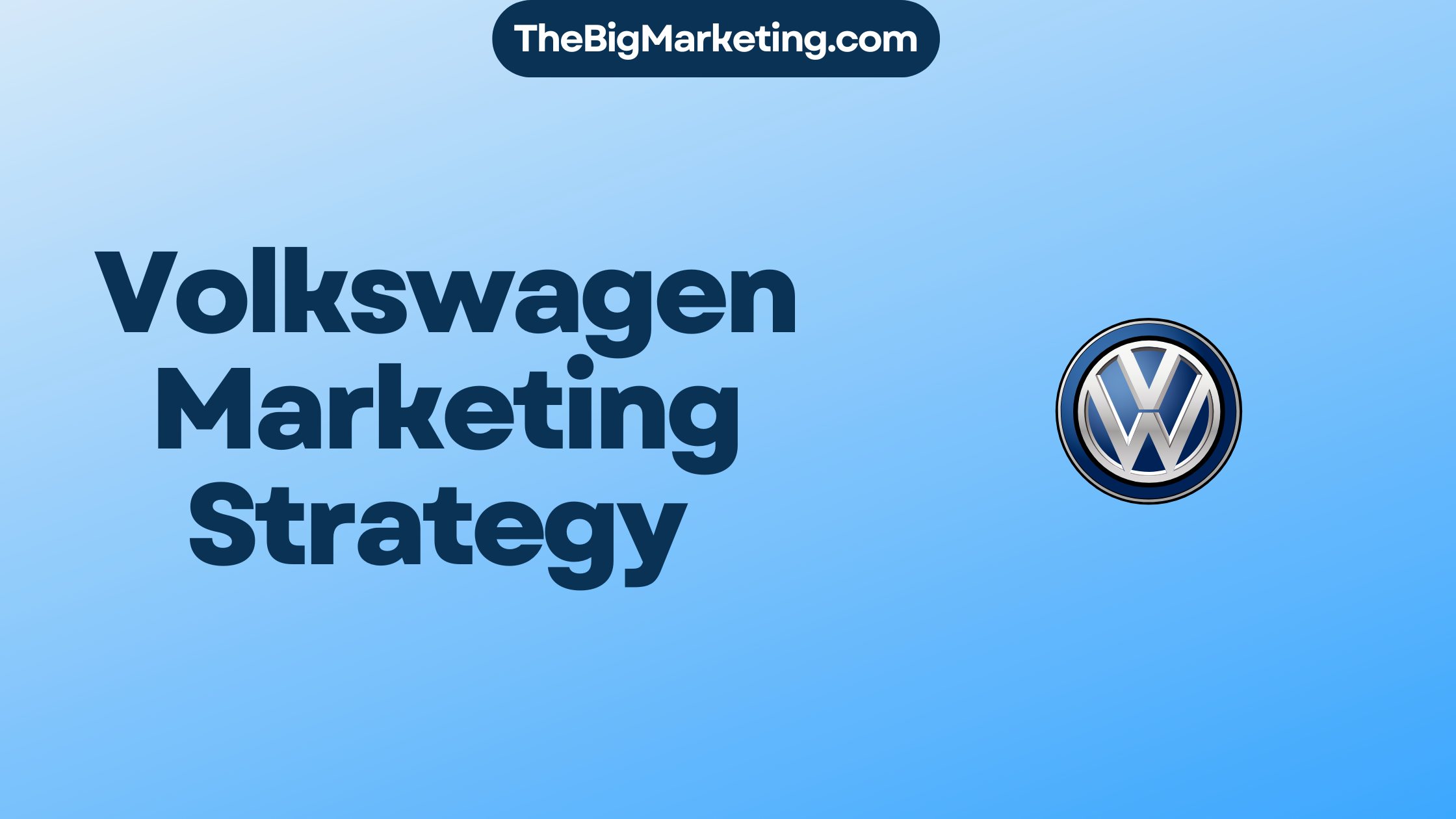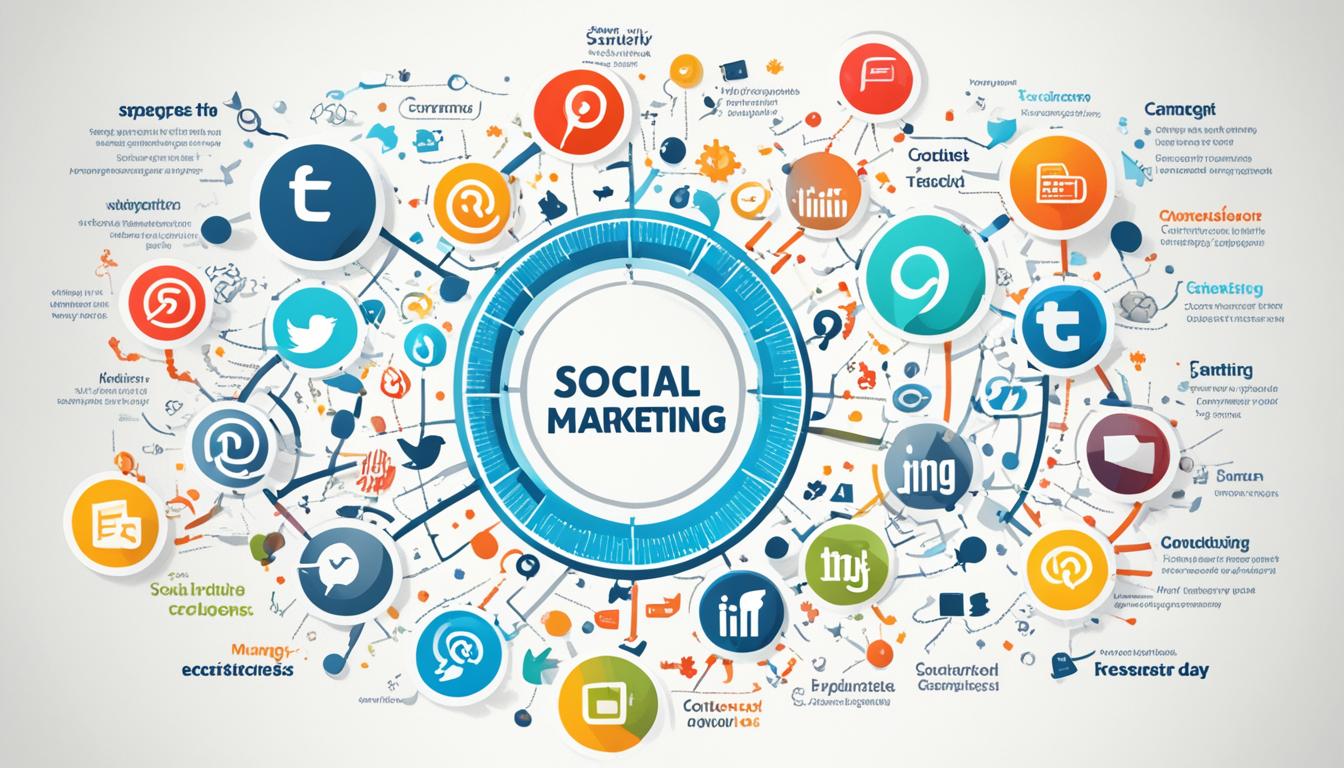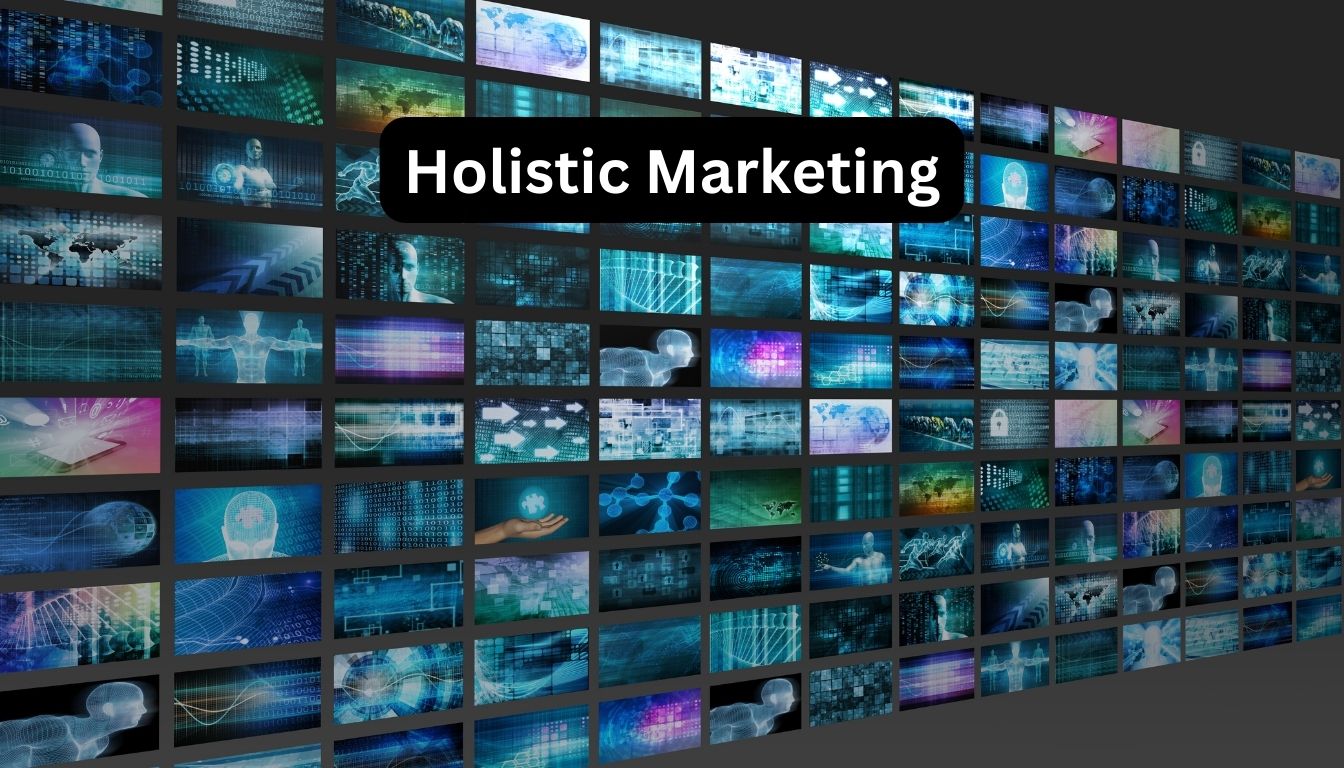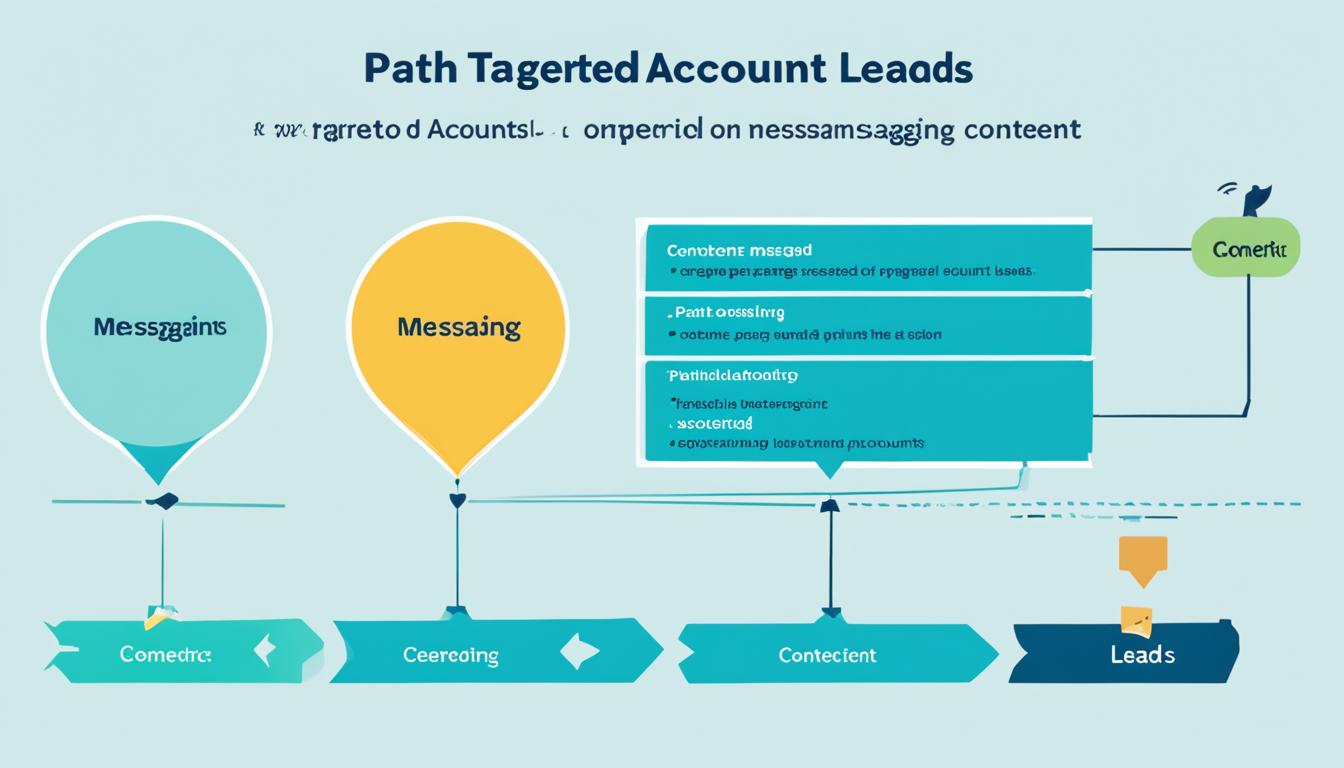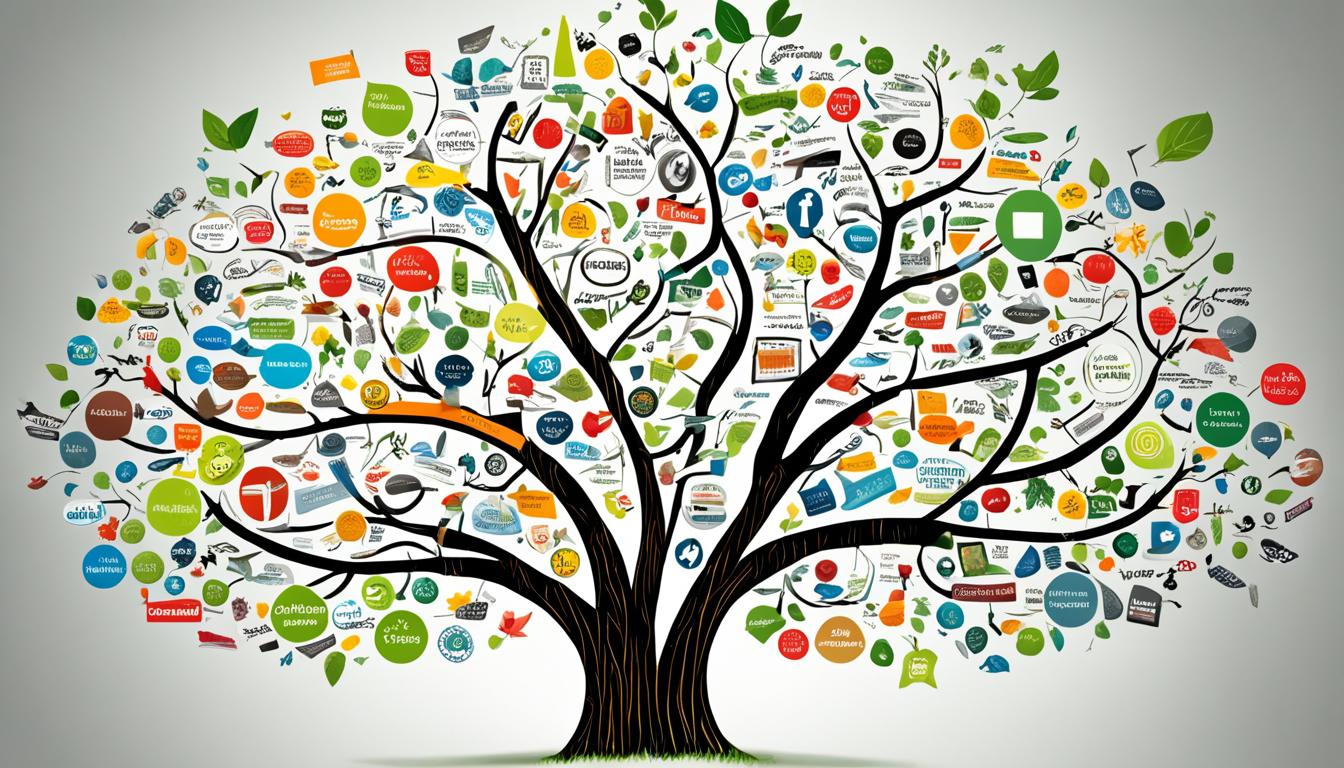When it comes to online advertising and reaching a vast audience, two key terms often come up: digital marketing and digital media. But what exactly do they mean, and how do they differ?
Digital marketing encompasses a wide range of strategies and tactics that leverage digital technology and the internet to promote products or services. It includes activities such as social media marketing, internet marketing, content creation, search engine optimization (SEO), and paid campaigns. The goal of digital marketing is to raise awareness, engage with the audience, and drive conversions.
Digital media, on the other hand, refers to the various electronic-based advertising platforms used to reach consumers. It focuses primarily on boosting sales and generating revenue. Social media marketing is a subset of digital marketing and involves using social media engagement platforms like Instagram and Facebook to connect with the audience.
As businesses strive to establish a successful online presence, understanding the differences between digital marketing and digital media is crucial. By grasping their respective roles and functionalities, you can develop effective marketing strategies that align with your goals and target audience.
Key Takeaways:
- Digital marketing encompasses various online marketing strategies, including social media marketing, content creation, and search engine optimization.
- Digital media refers to electronic-based advertising platforms that primarily focus on generating sales and revenue.
- Social media marketing is a subset of digital marketing and involves engaging with the audience on social media platforms.
- Understanding the differences between digital marketing and digital media is crucial for developing effective marketing strategies.
- By leveraging digital marketing and embracing social media, businesses can establish a strong online presence and reach their target audience effectively.
Understanding Digital Marketing
In today’s digital age, digital marketing has become a crucial component of any online marketing strategy. By leveraging digital technology and the internet, businesses can reach their target audience, build brand awareness, and drive engagement. Digital marketing encompasses a wide range of tactics, including social media marketing, video marketing, affiliate marketing, and pay-per-click advertising. Let’s explore these strategies further:
Social Media Marketing
Social media marketing is a type of digital marketing that focuses on using social media platforms such as Instagram and Facebook to connect with the target audience. Through strategic content creation and engagement, businesses can build a loyal following and drive traffic to their website or online store.
Video Marketing
Video marketing is another powerful tool in the digital marketing arsenal. With the popularity of platforms like YouTube and TikTok, businesses can create engaging and informative videos to showcase their products or services. Videos are highly shareable and have the potential to reach a wide audience.
Affiliate Marketing
Affiliate marketing is a performance-based strategy where businesses partner with affiliates to promote their products or services. Affiliates earn a commission for every sale or lead generated through their unique tracking link. This form of digital marketing allows businesses to tap into the affiliates’ existing audience and expand their reach.
Pay-Per-Click Advertising
Pay-per-click (PPC) advertising involves placing targeted ads on search engine results pages or social media platforms. Advertisers only pay when users click on their ads, making it a cost-effective and measurable way to drive traffic and conversions. With careful keyword targeting and ad placement, businesses can maximize the effectiveness of their PPC campaigns.
Understanding digital marketing and its various strategies is essential for businesses looking to succeed online. By incorporating these tactics into their overall marketing strategy, businesses can expand their reach, increase brand visibility, and drive meaningful customer engagement.
Digital Marketing Tools
Digital marketing tools play a crucial role in understanding and implementing effective digital marketing strategies. With a wide range of tools available, businesses can leverage various platforms and technologies to optimize their online presence and drive results. Here are some essential digital marketing tools that every marketer should have in their toolkit:
Organic Social Media Marketing
Effective social media marketing is a cornerstone of any digital marketing strategy. Tools like Hootsuite, Buffer, and Sprout Social can help streamline social media management, scheduling, and analytics. These tools enable businesses to engage with their audience, create compelling content, and track the performance of their social media campaigns.
Email Marketing
Email marketing remains a powerful tool for reaching and nurturing leads. Platforms like Mailchimp, Constant Contact, and HubSpot allow businesses to create visually appealing email campaigns, segment their audience, and track engagement metrics. Email marketing tools enable businesses to deliver personalized messages, build customer loyalty, and drive conversions.
Content Creation Tools
Compelling content is key to successful digital marketing. Tools like Canva, Adobe Creative Suite, and Grammarly assist in creating engaging visuals, videos, and written content. These tools offer templates, editing capabilities, and grammar checks to ensure high-quality and impactful content that resonates with the target audience.
Paid Social Media Marketing
A well-executed paid social media strategy can boost brand visibility and drive targeted traffic. Platforms like Facebook Ads Manager, Instagram Ads, and LinkedIn Campaign Manager offer sophisticated targeting options and advertising solutions. These tools allow businesses to manage their ad campaigns, analyze performance, and optimize their return on ad spend (ROAS).
Social Media Channels
Every digital marketer should be familiar with various social media platforms and their functionalities. Facebook, Instagram, Twitter, LinkedIn, and YouTube are among the most popular channels for reaching and engaging with a broad audience. Understanding the nuances of each platform helps in crafting tailored content and leveraging the right channel for specific marketing objectives.
Video Hosting Tools
Video content has gained tremendous traction in the digital marketing landscape. Tools like YouTube, Vimeo, and Wistia offer hosting solutions for business videos. These platforms enable businesses to showcase their brand, engage audiences through compelling visuals, and access detailed analytics to measure video performance.
Website Analytics
Tracking website analytics is crucial for understanding audience behavior and optimizing digital marketing efforts. Google Analytics and Hotjar provide comprehensive insights into website traffic, user interactions, and conversion rates. These tools help marketers identify areas for improvement, make data-driven decisions, and maximize the effectiveness of their digital campaigns.
SEO Tools
Search engine optimization (SEO) is essential for driving organic website traffic and improving visibility on search engine results pages. Tools like SEMrush, Moz, and Ahrefs assist in keyword research, on-page optimization, backlink analysis, and competitor research. These tools enable businesses to enhance their website’s search engine rankings and attract high-quality organic traffic.
Social Media Marketing Best Practices
Social media marketing plays a crucial role in any digital marketing strategy. To make the most of your social media efforts, it’s important to follow these best practices:
1. Develop an Effective Social Media Strategy
- Define your social media goals and objectives.
- Identify your target audience and choose the appropriate social media platforms.
- Create a content plan that aligns with your brand and engages your audience.
2. Consistently Post Relevant Content
- Maintain a regular posting schedule to keep your audience engaged and attract new followers.
- Create diverse content formats such as text, images, videos, infographics, and stories.
- Ensure your content is valuable, informative, and aligns with your audience’s interests.
3. Foster Audience Engagement
- Respond promptly to comments, messages, and mentions from your audience.
- Encourage discussions and interactions by asking questions and seeking opinions.
- Run contests, polls, or giveaways to incentivize engagement and increase brand awareness.
4. Leverage Data and Analytics
Utilize social media analytics to gather insights on your performance and adjust your strategy accordingly:
- Monitor key metrics such as reach, engagement, click-through rates, and conversions.
- Identify trends, patterns, and preferences among your audience.
- Apply this data to refine your content strategy, targeting, and ad campaigns.
By analyzing data and making data-driven decisions, you can optimize your social media marketing efforts for better results.
5. Harness the Power of Commercial Ads
Commercial ads on social media platforms offer a powerful way to reach your target audience and drive conversions. Ensure your ads:
- Are visually appealing and aligned with your brand identity.
- Contain compelling copy and a clear call-to-action.
- Target specific demographics and interests to maximize relevance.
Remember, successful social media marketing requires a comprehensive approach that combines strategy, consistent content creation, audience engagement, and data-driven optimization. By following these best practices, you can enhance your social media presence and achieve your marketing goals.
Digital Marketing Campaign Components
A successful digital marketing campaign comprises various components that work together to achieve marketing objectives. These components include search engine marketing, social media promotions, mobile market promotions, and email marketing. Let’s explore each component in detail:
1. Search Engine Marketing
Search engine marketing (SEM) plays a vital role in driving targeted traffic to websites and increasing visibility in search engine results pages (SERPs). It involves optimizing web content, conducting keyword research, and implementing paid advertising campaigns.
2. Social Media Promotions
Social media promotions are integral to digital marketing campaigns. Leveraging social media platforms such as Facebook and Instagram allows businesses to reach and engage a wider audience. Paid advertising on these platforms can further enhance the visibility and effectiveness of social media promotions.
3. Mobile Market Promotions
As the number of mobile users continues to rise, mobile market promotions have become essential. This component involves creating mobile applications, games, or interactive experiences and distributing them through app stores. It enables businesses to target mobile users directly and enhance customer engagement.
4. Email Marketing
Email marketing remains a powerful tool for driving conversions and nurturing customer relationships. By creating targeted and personalized email campaigns, businesses can promote their products or services, share valuable content, and build brand loyalty.
| Components | Description | Benefits |
|---|---|---|
| Search Engine Marketing | Involves paid search advertising or SEO and content strategy | – Increased website visibility – Targeted audience reach – Higher conversion rates |
| Social Media Promotions | Includes creating campaigns and using paid advertising on social media platforms | – Increased brand awareness – Enhanced audience engagement – Improved customer insights |
| Mobile Market Promotions | Involves creating apps, games, or interactive experiences for mobile users | – Direct targeting of mobile users – Enhanced customer interaction – Increased brand loyalty |
| Email Marketing | Utilizes targeted and personalized email campaigns | – Increased conversions – Nurtured customer relationships – Repeat business |
By integrating these components into a comprehensive digital marketing campaign, businesses can maximize their online presence, attract a wider audience, and drive successful marketing outcomes.
Importance of Social Media Marketing
In today’s digital world, social media marketing plays a vital role in the success of businesses. With the ever-increasing online presence of individuals and the exponential growth of social media platforms, leveraging social media for marketing purposes has become a necessity.
One of the key benefits of social media marketing is the ability to get your brand in front of a vast audience of potential customers. Social media platforms provide businesses with a unique opportunity to connect with customers globally, expanding their clientele and increasing brand exposure.
Moreover, social media marketing offers a range of commercial objectives that businesses can achieve. Whether it’s boosting brand exposure, driving website traffic, generating leads, or even conducting competitor analysis, social media marketing provides a versatile toolset.
Benefits of Social Media Marketing:
- A strong online presence: Social media marketing allows businesses to establish a robust digital presence, enabling them to reach and engage with a larger audience.
- Brand exposure: Social media platforms offer businesses the opportunity to increase brand visibility and connect with potential customers on a global scale.
- Competitor analysis: By monitoring competitors’ social media activities, businesses can gain valuable insights that contribute to refining their marketing strategies and staying ahead in the market.
Engaging with customers through social media is crucial for success in today’s digital age. By creating compelling content, responding to comments and messages, and building a community of loyal followers, businesses can foster strong customer relationships and drive customer loyalty.
Embracing social media marketing as a part of your overall digital marketing strategy is essential to thrive in today’s competitive landscape. It enables businesses to expand their online presence, enhance brand exposure, and stay ahead of the competition.
Choosing Between Digital Marketing and Social Media Marketing
When considering a career in the marketing field, individuals often find themselves choosing between digital marketing and social media marketing. Both fields offer promising career options and opportunities for growth. The decision ultimately depends on personal interests and career goals.
It is important to note that working in digital or social media marketing does not necessarily require a marketing degree. Both careers provide entry-level positions for individuals with no prior marketing expertise. However, acquiring a marketing degree can provide a solid foundation and enhance job prospects.
When making a decision between digital marketing and social media marketing, it is crucial to consider personal interests. Digital marketing encompasses various strategies and tactics beyond social media, such as content creation, search engine optimization, email marketing, and paid campaigns. On the other hand, social media marketing focuses specifically on leveraging social media platforms to connect with the audience.
Career goals also play a significant role in the decision-making process. Digital marketing offers a broader scope and provides opportunities to work across multiple marketing channels, while social media marketing allows professionals to specialize in social media platforms and engagement strategies.
Regardless of the chosen path, both digital marketing and social media marketing require proficiency in data analysis, project management, experimentation, and teamwork. These skills are essential for success in today’s competitive marketing landscape.

Ultimately, the choice between digital marketing and social media marketing depends on an individual’s passion, strengths, and long-term career objectives. Both fields offer exciting prospects for those who are eager to make a significant impact in the ever-evolving world of marketing.
Digital Marketing Manager vs Social Media Marketing Manager
A digital marketing manager and a social media marketing manager are both crucial roles in today’s digital landscape. While they share some similarities, each role has distinct responsibilities and areas of focus. Let’s explore the key differences between a digital marketing manager and a social media marketing manager.
Digital Marketing Manager
A digital marketing manager is responsible for overseeing the implementation of a company’s marketing plan and coordinating various digital marketing disciplines. They have a comprehensive understanding of different marketing channels and techniques to achieve marketing objectives.
Key responsibilities of a digital marketing manager include:
- Developing and executing digital marketing strategies
- Managing website optimization and SEO efforts
- Planning and implementing paid advertising campaigns
- Utilizing email marketing and automation
- Monitoring and analyzing website analytics
A digital marketing manager works closely with cross-functional teams, such as content creators, designers, and data analysts, to ensure effective campaign execution across various digital platforms. They focus on driving overall brand awareness, increasing website traffic, and achieving specific marketing goals.
Social Media Marketing Manager
A social media marketing manager is responsible for developing, implementing, and iterating a company’s social media strategy. They have a deep understanding of social media channels and marketing techniques to engage with the target audience effectively.
Key responsibilities of a social media marketing manager include:
- Creating and curating content for social media platforms
- Managing social media accounts and communities
- Developing and executing social media advertising campaigns
- Monitoring and responding to social media engagements
- Analyzing social media analytics and performance metrics
A social media marketing manager collaborates with content creators, designers, and community managers to create engaging social media campaigns. They focus on building brand presence, increasing social media reach, and fostering meaningful interactions with the target audience.
Both roles require a deep understanding of digital marketing principles, but they differ in terms of their specific areas of expertise. While a digital marketing manager oversees broader marketing strategies and disciplines, a social media marketing manager concentrates on leveraging social media channels to drive engagement and achieve specific marketing objectives.
| Digital Marketing Manager | Social Media Marketing Manager |
|---|---|
| Oversees the implementation of marketing plans | Develops and implements social media strategies |
| Coordinates various digital marketing disciplines | Manages social media accounts and communities |
| Focuses on overall brand awareness and marketing goals | Emphasizes building social media presence and engagement |
| Manages website optimization and SEO efforts | Executes social media advertising campaigns |
| Analyzes website analytics and performance metrics | Evaluates social media analytics and engagement metrics |
The Power of Digital Marketing
With the increasing number of internet users, digital marketing has become a powerful tool for businesses. It allows businesses to establish an online presence and connect with a large audience. Digital marketing encompasses various strategies and channels that enable businesses to reach their target market effectively.
Benefits of Digital Marketing
Digital marketing offers several advantages over traditional marketing methods. One of the significant benefits is its cost-effectiveness. Compared to traditional advertising, digital marketing allows businesses to allocate their budgets efficiently and reach a broader audience without breaking the bank.
Another key advantage of digital marketing is its measurability. Through the use of analytics tools, businesses can track and measure the performance of their marketing campaigns in real-time. This data-driven approach enables businesses to make data-backed decisions and optimize their strategies for better results.
Building an Effective Digital Strategy
To leverage the power of digital marketing effectively, businesses need to develop a comprehensive digital strategy. This involves understanding their target audience, choosing the right marketing channels, and creating engaging content that resonates with their customers.
By focusing on their online presence, businesses can increase brand visibility and engage internet users effectively. They can utilize various digital marketing channels such as search engine optimization (SEO), social media marketing, email marketing, and content marketing to build a robust online presence and drive customer acquisition.
Measuring Success with Key Metrics
Measuring the success of digital marketing efforts is crucial for businesses to understand and improve their performance. By tracking key metrics such as website traffic, conversion rates, click-through rates, and engagement rates, businesses can gauge the effectiveness of their campaigns and make data-driven decisions.
| Key Metrics | Definition |
|---|---|
| Website Traffic | The total number of visitors to a website. |
| Conversion Rate | The percentage of website visitors who take the desired action (e.g., make a purchase, sign up for a newsletter). |
| Click-Through Rate (CTR) | The percentage of people who click on a specific link or advertisement out of the total number of impressions. |
| Engagement Rate | The level of interaction and engagement from viewers on social media platforms, measured by likes, comments, shares, etc. |
By analyzing these metrics, businesses can identify areas of improvement and optimize their digital marketing strategies accordingly.
Conclusion
Digital marketing and social media marketing are two essential strategies for businesses to thrive in the digital age. While they have distinct approaches and benefits, they can complement each other to maximize marketing success.
Digital marketing encompasses a wide range of tactics, including social media marketing, video marketing, affiliate marketing, and more. It aims to raise awareness, connect with the audience, and establish a strong online presence. On the other hand, social media marketing focuses on utilizing social media platforms like Instagram and Facebook to engage with the audience and achieve commercial objectives such as brand exposure and competitor analysis.
By embracing digital marketing and leveraging social media, businesses can create a powerful digital presence. They can deliver personalized experiences to their target audience, connect with customers on various touchpoints, and analyze campaign performance in real-time. This combination of digital marketing and social media marketing is crucial for online success in today’s competitive landscape.
In conclusion, incorporating both digital marketing and social media marketing strategies into a comprehensive marketing plan is key to achieving a strong digital presence and attaining personalized experiences for target audiences. By understanding the different approaches and benefits offered by each strategy, businesses can optimize their marketing efforts and drive online success.
FAQ
What is the difference between digital marketing and digital media?
Digital marketing is any online marketing strategy that depends on digital technology, including the internet, while digital media includes all contemporary, electronic-based advertising.
What are some examples of digital marketing tactics?
Some examples of digital marketing tactics include social media marketing, video marketing, affiliate marketing, and pay-per-click advertising.
How does social media marketing differ from digital marketing?
Social media marketing is a part of digital marketing and is carried out on platforms like Instagram and Facebook. While digital marketing seeks to raise awareness and connect with the audience at various touchpoints, social media marketing primarily focuses on using social media engagement platforms to connect with the audience.
What are some important digital marketing tools?
Some important digital marketing tools include organic social media marketing, email marketing, content creation tools, paid social media marketing, social media channels, video hosting tools, website analytics, and SEO tools.
What does a typical digital marketing campaign include?
A typical digital marketing campaign includes components such as search engine marketing, social media promotions, mobile market promotions, and email marketing.
Why is social media marketing important?
Social media marketing is a necessity in today’s digital world as it helps businesses get their brand in front of customers and grow their clientele internationally. It can also be used for various commercial objectives such as brand exposure and competitor analysis.
Do I need a marketing degree to work in digital or social media marketing?
No, working in digital or social media marketing does not necessarily require a marketing degree. Both careers provide entry-level positions for individuals with no prior marketing expertise.
What is the role of a digital marketing manager?
A digital marketing manager oversees the implementation of a marketing plan and coordinates various digital marketing disciplines.
What is the role of a social media marketing manager?
A social media marketing manager is responsible for developing, implementing, and iterating a company’s social media strategy.
What are the benefits of digital marketing?
With the increasing number of internet users, digital marketing has become a powerful tool for businesses. It allows businesses to establish an online presence, connect with a large audience, and measure and analyze campaign performance in real-time.
